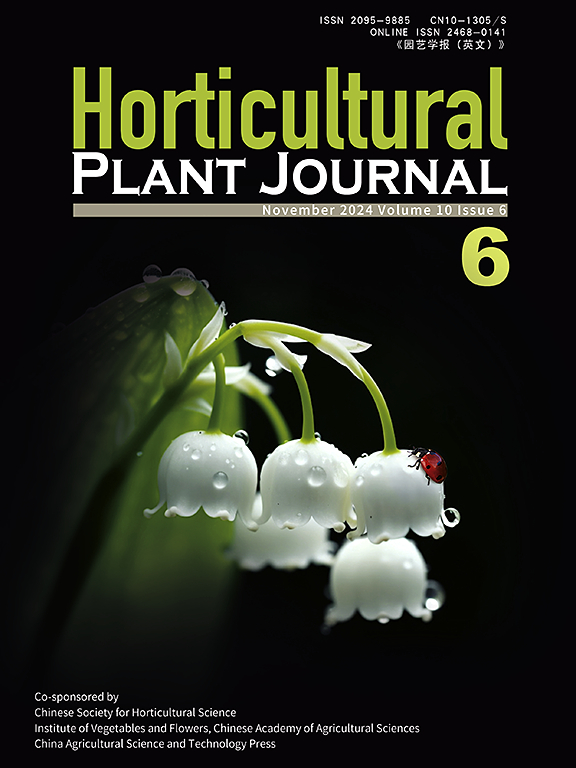Biocontrol efficiency and the functional mechanisms of Bacillus velezensis RT-30 against kiwifruit soft rot
IF 5.7
1区 农林科学
Q1 HORTICULTURE
引用次数: 0
Abstract
Soft rot is a severe postharvest disease affecting kiwifruit production. The management of this disease primarily relies on the use of chemical fungicides. However, biological control using antagonistic microorganisms presents a promising alternative to fungicides. In the present study, whole-genome sequencing identified and characterized求助全文
约1分钟内获得全文
求助全文
来源期刊

Horticultural Plant Journal
Environmental Science-Ecology
CiteScore
9.60
自引率
14.00%
发文量
293
审稿时长
33 weeks
期刊介绍:
Horticultural Plant Journal (HPJ) is an OPEN ACCESS international journal. HPJ publishes research related to all horticultural plants, including fruits, vegetables, ornamental plants, tea plants, and medicinal plants, etc. The journal covers all aspects of horticultural crop sciences, including germplasm resources, genetics and breeding, tillage and cultivation, physiology and biochemistry, ecology, genomics, biotechnology, plant protection, postharvest processing, etc. Article types include Original research papers, Reviews, and Short communications.
 求助内容:
求助内容: 应助结果提醒方式:
应助结果提醒方式:


